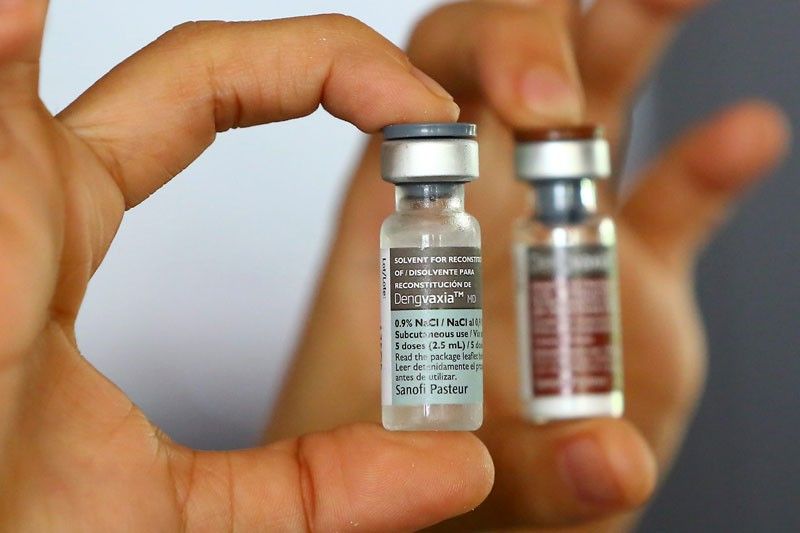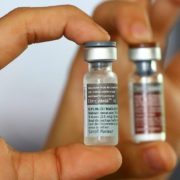
THE Department of Health (DOH) on Tuesday, December 11, said that the agency does not see Dengvaxia being used anytime soon despite its one-year ban coming to an end.
DOH Undersecretary Eric Domingo, in an interview, noted that the one-year suspension of the marketing license of Dengvaxia will likely get an extension after December 29.
“The one-year suspension of the Certificate Product Registration (CPR) of Dengvaxia is not yet lifted and I don’t see it being lifted anytime soon,” Domingo said. The administering of Dengvaxia was suspended on December 29, 2017 by the Food and Drug Administration (FDA) after its manufacturer Sanofi Pasteur had failed to comply with post-marketing requirements.
According to Domingo, the DOH does not see the product being registered and sold again in the country right after the one-year suspension of its CPR.
Health Secretary Francisco Duque III suspended the dengue vaccination program after Sanofi admitted in November 2017 that it could cause severe dengue if given to those who have not had dengue. Pending regulatory and legal issues and the lack of testing kits to detect previous dengue infection were cited by Duque as some of the reasons that would stop the return of Dengvaxia.
“Even if the suspension is lifted, who will let themselves be vaccinated with Dengvaxia?” he added.
DOJ ends probe
Meanwhile, preliminary investigation on criminal charges against former health secretary Paulyn Jean Ubial over the deaths of school children inoculated with the controversial Dengvaxia vaccine has been concluded by the Department of Justice (DOJ).
Investigating Assistant State Prosecutor Claire Eufracia Pagayanan has submitted the case for resolution. This is after the last hearing on Monday where Ubial submitted her rejoinder and sought dismissal of the charges of reckless imprudence resulting in homicide for lack of basis.
Former Health Secretary Janette Garin, who is facing a string of criminal charges over the alleged Dengvaxia deaths filed by families of victims, filed the complaint against Ubial.
According to Ubial, the accusation of Garin that she should be held criminally liable because it was she who decided to shift the dengue immunization program from being school-based to community-based, contributing to the alleged deaths among immunized children, was “false and unfounded.”
Garin “merely surmises that the implementation of the Community-Based Dengue Immunization Program ‘may have’ contributed to ‘alleged reported deaths,’” she stressed.
Garin’s claim that the community-based implementation of the dengue immunization program was contrary to World Health Organization (WHO) recommendations that immunization programs should be school-based was also refuted by Ubial.
Ubial was “not negligent or imprudent in implementing the Community-Based Dengue Immunization Program,” she explained, and further said the decision to implement it was “a result of discussions by the (DOH) executive committee, consultations with medical experts and was supported by scientifically and medically backed-up research culled from several years of clinical trials.”
Garin served as health chief from December 2014 to June 2016, followed by Ubial, who was in the post from July 2016 to October 2017.
Garin and 37 other health officials, executives of Sanofi and its distributor Zuellig Pharma are currently facing a total of 29 cases for reckless imprudence resulting in homicide and violations of the Anti-Torture and Consumer laws.
Ubial has not been charged in the cases because she would be used as a prosecution witness, the Public Attorney’s Office earlier explained. (AJPress)





